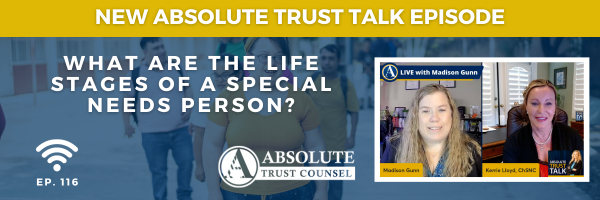It began on a sunny Saturday morning, when 70-year-old Sandra Johnson’s phone rang.
“Sandra, Sandra Johnson?” the caller asked.
“Yes, that’s me,” she responded.
“I’m pleased to inform you that you have won the Clearinghouse Sweepstakes, a grand prize of $1 million! Unfortunately, when we went to your address to deliver the check, no one was home. Before we go further, could you verify your address for me?”
Sandra replied, “1105 Elm Grove Lane.”
“Hmmm. I’m sorry, that is not the address we have on file. Have you ever lived elsewhere?”
“No. I have lived here for more than 40 years.”
“Okay. That’s odd. Do you have any other identification, such as a driver’s license or social security number?”
Not wanting to dig in her purse for her driver’s license, Sandra quickly rattled off her social security number.
“Great!” the man said. “That matches. Unfortunately, we no longer have the prize patrol in town. Would you prefer that our representative deliver the check to your home or would you like to meet him at your bank, so we can deposit the check immediately? Personally, I wouldn’t want my mother carrying a check around for a million dollars.”
Sandra paused. Perhaps it would be safer to have the check delivered to her bank. “I guess the bank would be better,” she replied.
“Great!” the man said. “If you can meet me with a deposit slip filled out for $1 million, we can make the deposit immediately. What time would be convenient for you? ”
“Um, right now?” Sandra asked.
“Okay, can you provide me with the address of your bank and your account number so our corporate office can notify your bank that a large deposit is going to be made? This will aid us in verifying your deposit so the funds are available to you immediately.”
Excitedly, Sandra provided the information requested.
“Excellent,” the man said. “I will meet you in the main lobby of the bank in 20 minutes. I will be wearing a dark blue suit with a red tie and carrying a balloon bouquet. I will have a photographer with me.”

With visions of shopping sprees and luxury cruises dancing through her head, Sandra got in her car and drove to the bank. Where she waited. And waited. And waited. Finally, in tears, Sandra approached a teller.
The teller called over a bank officer, who began to check all her accounts. Within 10 minutes, Sandra was politely ushered into a conference room and offered a drink of water.
“I am sorry to tell you this, Sandra, but as of 30 minutes ago, all of your accounts were cleaned out. We have contacted the police and the FBI, but that’s all we can do.”
Sandra cried, “But I just deposited the check from my retirement plan and Social Security, and checks from my annuities were in there as well. If that’s gone, I have nothing to live on! What about my savings? I didn’t give them that number. Surely, my savings is still there?”
The banker shook his head. “I’m sorry, Sandra, the scammers managed to access all of your accounts. You didn’t by chance provide them with your Social Security number, did you?”
“Yes, but only to verify my identity! I didn’t give them permission to use it to access my accounts.”
“Once they have that number, Sandra, they not only have access to all of your bank accounts, they have the ability to steal your identity and wreak all sorts of havoc with your finances. You should never, ever, give out your Social Security number over the phone, nor should you give out bank account numbers.”
“But I won a million dollars,” Sandra wailed. “They said I won a million dollars, from that place that had all those commercials on TV!”
The banker patted her hands. “You never won anything, Sandra. If it sounds too good to be true, it usually is. You have been scammed. There is a good chance you will never see that money again.”
A recent study found that in 2016, almost $16 billion was stolen from about 15.4 million consumers in a wide variety of scams. The state of California was ranked tenth in the tally of total losses. Recent scams include:
- Appeals from relatives in trouble. Individuals receive communications from an alleged relative, claiming dire financial straits, such as being stuck in a foreign county without the means to get home or other emergencies, such as being held in jail until they can make bail.
- IRS penalties. Scammers posing as IRS employees call consumers and threaten arrest and/or driver’s license suspension for failing to pay back taxes. To cure the problem, people are offered the opportunity to pay the penalty over the phone by credit or debit card.
- Credit card consolidation. Consumers are notified by phone that they have qualified for an attractive interest rate on their credit cards, if they agree to consolidate credit card debt immediately with the representative making the offer.
- Improved healthcare insurance. Scammers claim to be calling from a government agency offering a better health insurance plan at a much lower price.
- Investment scams. People claiming to be professional financial advisors offer to either invest money on someone else’s behalf or offer the opportunity to invest in a project that offers exceptional returns
- Death scams. Sadly, scammers take advantage of grieving families. In one scam, family members of a recently-deceased relative are informed that the deceased owes money or had ordered something that needs to be delivered, usually on a cash-on-delivery basis. Death scams extend to funerals. For example, family members might be encouraged to purchase a casket or funeral plot when a family member is being cremated, or a funeral contract might contain hidden fees.
The best way to avoid scams?
- Ask questions and verify identities or credentials.
- Never provide personal information by phone or to a stranger, especially social security, bank account and/or credit card numbers.
- Do not invite strangers into your home or offer to meet them privately.
- Acknowledge even a tiny flicker of doubt and consult with a trusted family member or attorney.
If a family member or friend appears to be vulnerable to scams, find ways to monitor and protect their financial resources.

